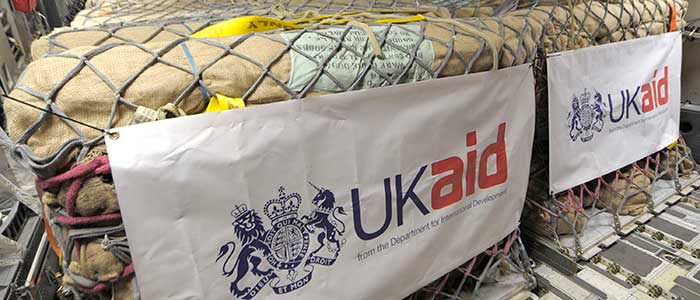The International Development Select Committee said the procurement practices of the UK’s Department for International Development are not robust enough, and found that it is over-reliant on competition and self-regulation.
Dfid’s spending via for-profit, private sector firms has surged in recent years, almost doubling since 2010/11. That year, Dfid spent £540m on contractors. By 2015/16, this had risen to £1.34bn, representing a rise from 12% of the aid budget to 22%.
This has been accompanied by growing concern around the role of large private sector organisations in UK aid, as well as their motives, value for money and impact on development.
These concerns peaked in recent weeks when it emerged that one of Dfid’s biggest contractors, Adam Smith International, had “acted improperly” to manipulate the outcome of a parliamentary inquiry by the same committee that published today’s report.
The committee said that this “appalling conduct”, which is “entirely misaligned” with Dfid’s purpose, should not be seen as an isolated incident but a sign that there “is something very wrong with the culture of certain organisations”.
Some have “fundamental flaws” in their working practices, it continued, with other examples including large contractors mistreating their smaller sub-contractors.
The committee said this points to “insufficient” oversight and a “worrying over reliance on self-regulation” from Dfid. It added that while the department requires contractors to sign up to a statement of priorities and expectations, there is a “complete lack of enforcement”.
Contractors are awarded for winning rather than delivering on contracts, the report continued, and often keep contracts, or win new ones, even when they have underperformed.
Meanwhile, it added, the fees paid to private contractors raise questions over value for money and offer little reassurance that contractors “are not getting rich from UK aid”. There is a “difference between profiting and profiteering”, it stressed.
Stephen Twigg, chair of the committee, said these “real concerns” are shared by both the secretary of state for international development, Priti Patel, and the media.
“We agree with Patel that Dfid’s contractors and partners should be held to the highest standards and there should be ‘no room for excessive profiteering or unethical practices’ in this work.”
It called for a “genuine rethink” of the sector, including a carefully designed remuneration framework.
More administrative capacity needs to be dedicated to managing these contracts, for instance through an arms-length body, the committee continued, adding that some functions “cannot be outsourced”.
The report also highlighted Dfid’s over reliance on competition to achieve value for money. It noted this needs to be reduced, especially in light of the committee’s findings that a number of factors are undermining competitive elements of the market.
These include disparities in the amount of information provided to certain players and barriers to entry, which lock out smaller organisations despite Dfid’s stated aim of increasing their presence in its procurement.
One practice, for instance, pre-approves a pool of suppliers that can bid for contracts, focusing efforts on the tendering process. The committee said that while this has efficiency and cost benefits, it narrows the pool of suppliers, often to the detriment of smaller organisations with technical expertise.
A Dfid spokesperson said the department is undertaking a review of its work with suppliers to “instigate root and branch reform” to ensure transparency, accountability and diversity of suppliers – a process that the committee’s report would assist in.
“The secretary of state has been crystal clear that she expects all suppliers to deliver results for the world’s poorest, provide value for taxpayers’ money and that she will not tolerate anything less,” the spokesperson said.














